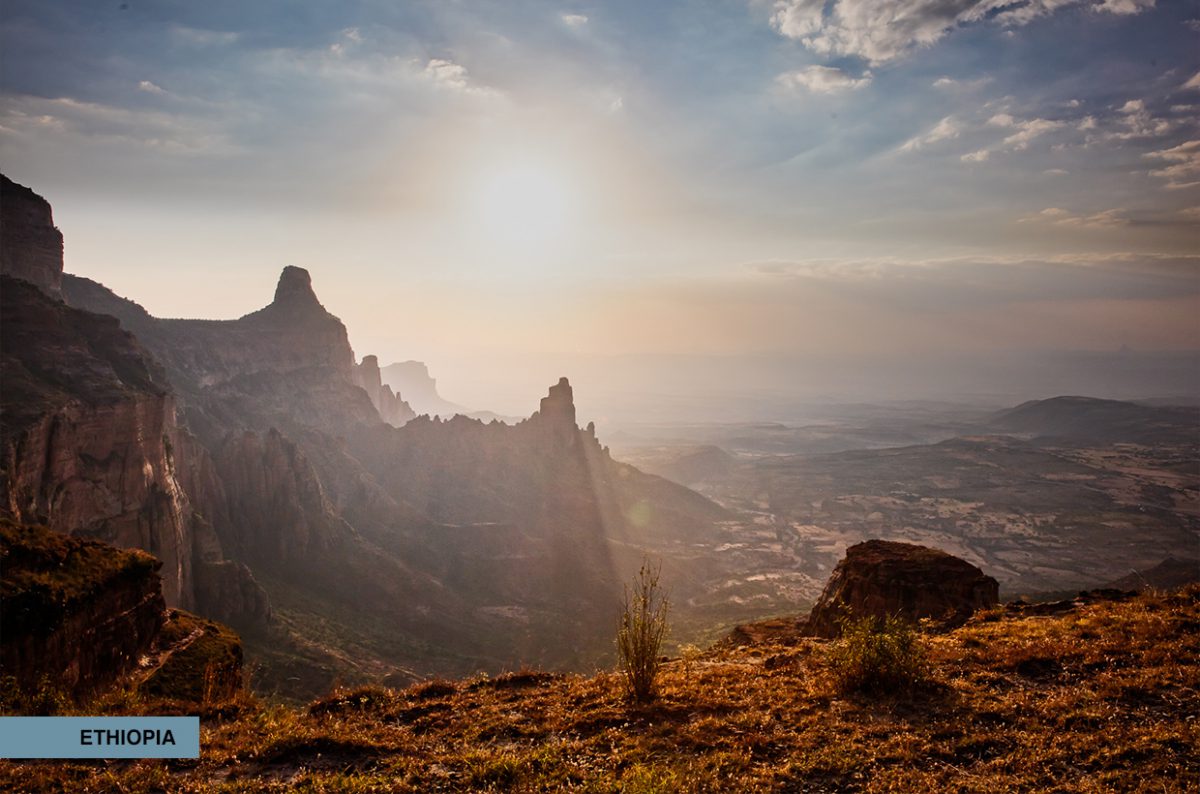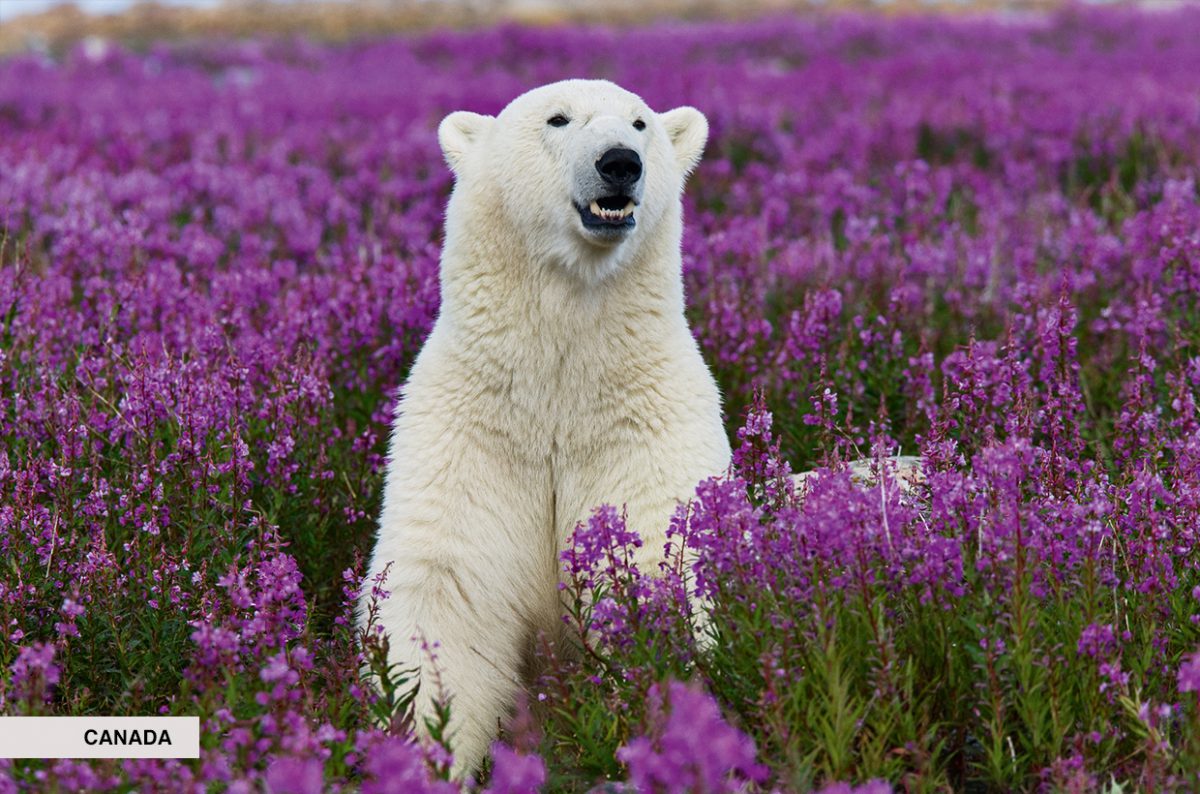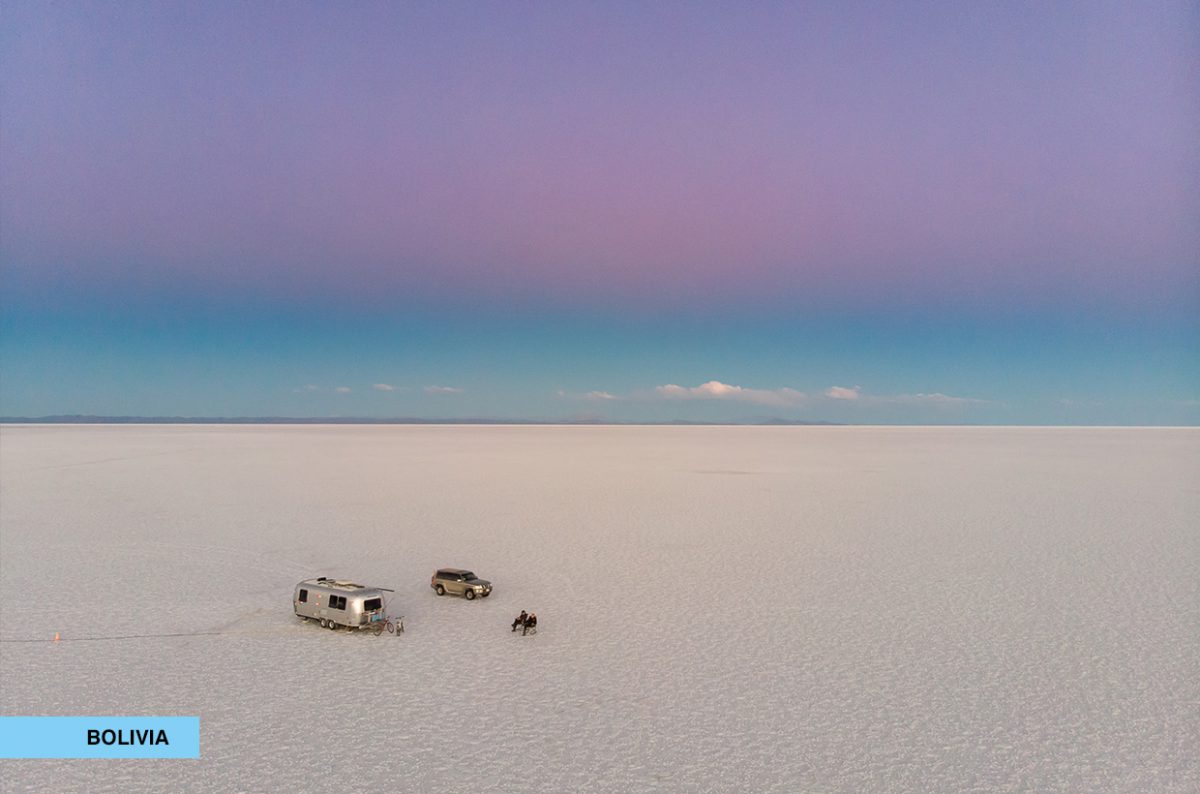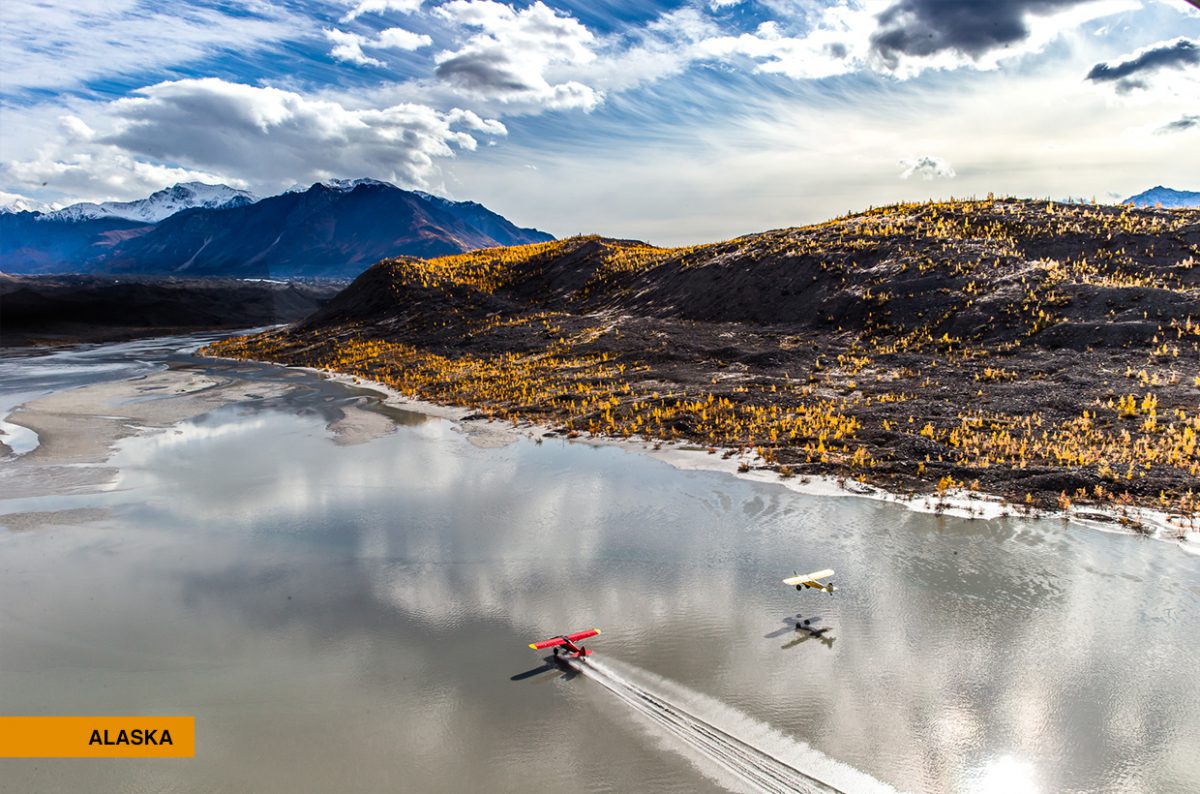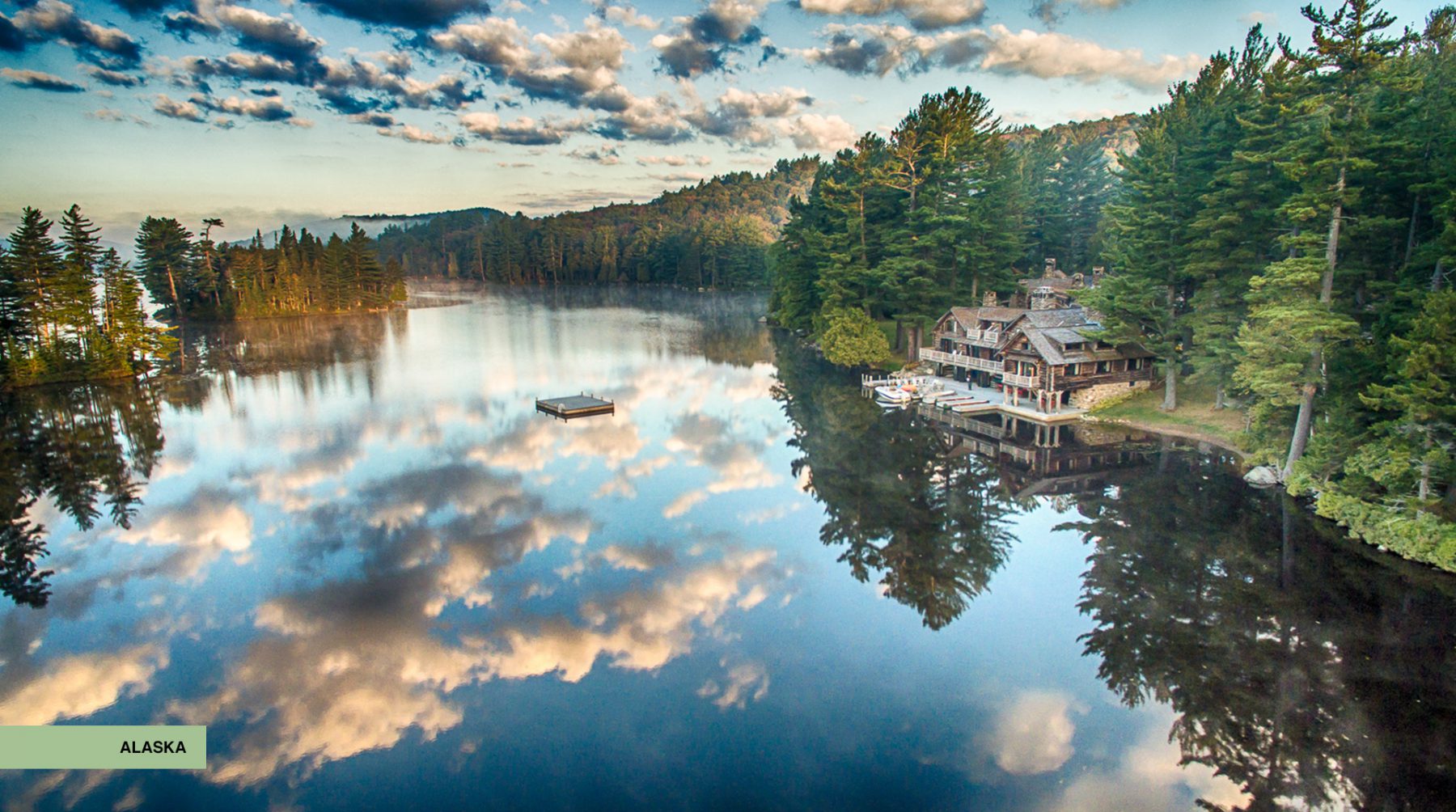Cinema FOR THE SOUL ... by Sven Michaelsen | 31st August, 2018 | Personalities
After a career as an actor and founding his own IT business, Michael Poliza became a celebrated wildlife photographer who today also organizes bespoke luxury tours to the most remote corners of the world. His aim? To create memories that last a lifetime.
When you first enter Michael Poliza’s pristine white, late-nineteenth century villa in Hamburg, Germany, the large-format photographs of Africa on the walls seem out of place. The 60-year-old says he has traveled to 175 countries, so according to the UN’s latest count, he still has another 18 to go. Long before it became a buzzword in Germany, Poliza was practicing creative disruption. He was a movie and theater actor, a millionaire IT entrepreneur, a hotel manager on Africa’s most exclusive private island, the co-founder of a Germany-wide chain of movie theaters and the owner of a 23-meter high-tech vessel in which he circumnavigated the globe in 1,000 days. Today he is a wildlife and landscape photographer, as well as an organizer of bespoke luxury tours to the world’s last natural paradises. So does he think he will add a few more professions to this long list in the next few years? “I’m afraid so,” Poliza says. “After all, they say 60 is the new 40.”
Mr. Poliza, there are hundreds of travel operators on the Internet claiming to be experts in luxury travel to Africa. What distinguishes you from the competition? I don’t consider myself part of the travel industry. In Anglo- Saxon countries, I would be called an “experience designer” in the memory creation industry. The statement I most often hear in the initial briefings with my clients is: “Mr. Poliza, please provide us with experiences that touch the soul, and memories that last a lifetime!” Squinting into the sun at the infinity pool of a five-star hotel in the Caribbean with a glass of rosé champagne in your hand is a lovely thing. The problem is that our memory only stores such experiences for a couple of days. This is why, in people’s memories, entire vacations shrink to a single day. On the other hand, magnificent experiences in nature allow us to draw on them for the rest of our lives because they are etched into our brains due to their intensity. Put simply, my core skill is creating wide-screen cinema for the soul.
The trips you arrange often take place in deserted areas without cell phone coverage. How do your clients react to not being available and not being able to post selfies on Instagram? We always carry a satellite phone for emergencies, but apart from that, it’s like going cold turkey: The first 24 to 48 hours are the worst. After that, people’s priorities shift and that’s when the voluntary digital detox begins. New emails become just as unimportant as your Facebook newsfeed. Body and soul relax, and you experience the exhilarating feeling of living in the here and now. Children suddenly start talking to their parents again, and you discover how wonderful it is to have a conversation at mealtimes, rather than furtively glancing at a screen. It is an intangible, sustainable luxury.
What starts as a vacation in the bush becomes a family therapy? The feedback we get from our clients shows that this works really well. Because of globalization many families are scattered all over the world. The son is studying in Hong Kong, the daughter in New York. When the parents decide to spend the annual family vacation in a city like Paris or London, they make a depressing discovery. Their children are so well connected through social media that even in an unfamiliar city, they constantly have appointments and rarely come back to the hotel before 2 am. So, the family breakfast scheduled for the next morning just does not happen. Parents can call themselves lucky if they see their kids at lunch. That does not create a feeling of togetherness. On our trips, you are in close contact 16 hours a day, sometimes in the most intense conditions in nature. That fuses people together and the family becomes a unit once again.
Why do you so often transport your guests by helicopter? The demand for unspoiled natural beauty is greater than its supply. Tourists destroy the thing they seek by finding it. They want to travel to places that logic dictates can hardly exist: far from civilization, yet easily accessible and equipped with luxurious accommodation. Take Kenya, for example: 90 percent of tourists always see the same 10 percent of the country. This leads to these areas now being hopelessly overcrowded. We fly our guests to magical landscapes like Lake Turkana in northern Kenya, a region that is almost impossible to reach by jeep and is correspondingly deserted. As we specialize in destinations such as this, helicopters are the perfect way to travel. They also provide the highest degree of flexibility in trip design. If it is 35°C in the shade and you decide it would be wonderful to cool down a bit, we simply take you for a dip in a secluded spring a 20-minute helicopter ride away, or for a snowball fight up in the mountains on 5,200-meter Mount Kenya. Such spontaneous jaunts are possible because in some African countries helicopter movements are not encumbered by time-consuming requirements for takeoff and landing permits. If guests want to enjoy the panoramic views en route, we simply keep the side doors of the helicopter open during the flight.
You advertise a “360-degree experience of nature.” What does that mean exactly? It means that nature and natural beauty won’t disappear the moment you turn around. Mainstream safari tours have become a rather sobering experience. If a guide spots a lion, he radios a colleague who works for the same company. Ten minutes later that lion is surrounded by 30 jeeps and the prevailing atmosphere is reminiscent of a petting zoo. Unfortunately, it is not a rare occurrence for a lion to be surrounded by half a dozen minibuses and screaming bikini- clad girls from Mombasa. I’ve never seen anything more tragic.
You’re an ambassador for WWF, the World Wide Fund For Nature. Aren’t helicopters a highly questionable mode of transportation from an ecological perspective? No, because there is no need to build roads and the passengers’ footprints are blown away by the wind the rotors produce during takeoff. We leave a place exactly as we find it. And of course we offset the carbon dioxide emissions of our flights through Myclimate.
How much does that cost? €3.80 per flight hour. As this relatively modest price demonstrates, helicopters are not big polluters.
Why do you call yourself an experience designer? Isn’t that a little over-ambitious? Rather than randomly lining up accommodation and experiences, I create an arc of suspense. A successful trip works like a well-written novel: it has a soul, a narrative and offers unexpected twists. You only give away part of the itinerary, because you want to surprise the clients. As an unsuspecting guest, you may, for example, be taken to a forest clearing before sunrise, where a hot air balloon awaits you. Hours later the balloon lands in a deserted part of the savannah, where you find an opulently laid-out breakfast waiting for you. Such “wow” experiences are the DNA of our trips.
What have you learned about your clients? It’s important to take guests out of their comfort zone, but not too far or for too long. For example, guests may spend one night in tents and sleeping bags at an altitude of 2,000 meters on the edge of an active volcano, with a great view of the redhot, bubbling lava and the bright yellow sulfuric rock. After this glimpse into hell, they will spend the following night at a high-end lodge with box-spring beds and a luxury spa.
Is it worthwhile taking a trek to see the last mountain gorillas? Yes it is. Looking straight into the eyes of our closest relatives is an almost spiritual experience. The most luxurious lodges for gorilla trekking tours are in Rwanda. However, you should be aware that, fortunately, gorilla watching is heavily regulated these days. Visitors get an hour, not a minute more, and prices are exorbitant. In Rwanda, you pay $1,500 per person, in Uganda it is $700. You also have to factor in between 20 minutes and three hours for the hike up to where the gorillas can be found – and we’re not talking about a walk through Central Park, either. The rainforest is wet and slippery, and you have to walk uphill.
What kinds of mistaken expectations do clients sometimes have when they book an African safari? Safaris aren’t the right kind of vacation for catching up on lost sleep. You should get up early enough to be at your destination by sunrise. This is why I advise adding a few days on the beach to the end of the trip, to regroup and relax.
At what age is a safari a worthwhile experience for a child? Children should be at least eight years old. Some lodges offer programs that also cater to 4- or 5-year-olds. We can provide further advice on this.
Are there any client wishes that you refuse to fulfill? We don’t offer hunting trips. We like the animals to stay alive after we find them.
Where do your clients come from? Half of them are from German-speaking countries, the other half are from Canada, Mexico, Australia and the U.S.
Some of your clients are billionaires and movie stars. What is your own background? My parents ran a restaurant and bar in Hamburg that was open from 7 pm to 3 am. They weren’t the type to settle down, so I moved house 19 times before my 18th birthday.
How did you become an actor at age 10? My parents’ restaurant was located close to the Studio Hamburg film production company, so their patrons included many producers and directors. One of these gentlemen took a shine to my sister and thought the quickest way to her heart was through her little brother. So he offered me a part as an extra.
You acted in roughly 80 movies. Why didn’t you stick with acting? At 17, I played the young version of German writer Walter Kempowski in a two-part TV drama and decided that this was the right moment to leave. Parroting words in a script written by others wasn’t going to be fulfilling in the long run. At the age of 18, I moved to the U.S., where I graduated from high school. I went on to study computer science in Oklahoma before founding an IT company in Hamburg that quickly became very successful.
One of the photos from back then shows you with a bespectacled nerd who these days is worth an estimated $90 billion and is the second richest person in the world: Bill Gates. Today, I could put this photo in a silver frame and display it on my mantlepiece to show off. Quite frankly, though, there was no glamour in the computer industry back in the 1980s. The name Bill Gates only meant something to a few insiders. At the time, he was traveling economy class back and forth to Germany to do some networking for Microsoft. We met on one of these occasions. One time, we wanted to attend the Systems computer trade fair in Munich, but arrived too late to get a hotel room. In the end, we stayed in a bed-and-breakfast in a Bavarian village. I still remember brushing the dandruff from his jacket on the way to the trade fair.
In 1996 you sold your IT company and two years later founded the Cinemaxx movie theatre chain, together with entrepreneur Hans-Joachim Flebbe. Why did you end up leaving that company eventually as well? I wanted to do something that would make me feel happy inside. Bill went on to make more money whereas I followed my heart. I acquired a ship and traveled around the world in 1,000 days with a crew of eight. In collaboration with Stern magazine, I had collected the necessary funds from sponsors, and then off I went to explore the world’s hidden paradises. The aim of the Starship Millennium Voyage was to make people understand how endangered all these places are. At the end of the three-year trip, I sold the Starship to Hollywood actor Gene Hackman and moved to Cape Town. From there, I explored Africa and discovered my passion for wildlife photography. I am self-taught, but my photos caused a stir because of their artistic angle.
You have published a dozen illustrated books. What prompted you to become an organizer of bespoke luxury tours eight years ago? I was also a hotel manager on North Island for a few months…
… a private island in the Seychelles, where a night’s stay costs upwards of €6,000. That’s where I met gastronomy magnate Stefan Breuer. He said: “I have a helicopter in Switzerland and a farm in South Africa. Would you be interested in organizing a helicopter trip from Ascona to Kruger National Park and accompanying me on the journey?” I said yes and managed to convince Breuer that it would actually be nicer to travel to Cape Town from Hamburg, Germany. News of our eight-week helicopter trip got around. Suddenly, there were 30 people interested in similar trips. So, an off-the-wall idea turned into a passion and a job.
Which parts of Africa would you say are definitely worth seeing? My favorite regions are northern Kenya, northern Namibia and northern Tanzania.
We’re featuring a photo you recently took in Bolivia. What was the purpose of that trip? My clients want to see the most beautiful places in the world, but those do change. What used to be an idyllic place only yesterday is a holiday resort complete with a water park today. Bolivia offers places of natural beauty that nobody has yet heard of back home.
Who was your most extravagant customer? There was a young Russian who arrived with five aircraft. He used his Gulfstream jet for the flight from Moscow to Botswana, a larger propeller plane for the flights between camps and a helicopter for shorter trips. Add to that, two smaller propeller planes: one to fly in groups of musicians for the evenings’ entertainment, the other one for the luggage.
Do you also organize cheap trips? No, but I can do reasonably priced ones. A family of four has just traveled to Namibia with us for ten days and we managed to keep the price below €5,000 per person.
How many tours to you accompany personally? We organize roughly 60 tours a year and I participate in eight to ten of them.
Taking a step back for a minute: After eight years of playing gofer for pampered individuals and spending months away from your partner, do you still enjoy your job? It’s all about the right level of involvement. In 2015, I was on the road for ten months. That was too long. When I got home on December 21, I sat down on the sofa and spent three days doing nothing but staring into space.
If you had to pick the most fundamental thing you’ve learned in life, what would it be? Being fearless about the future. Most people will only close one door if there is another one already open. I’m the kind of person who will close the door first, then looks around for new doors that are opening.
